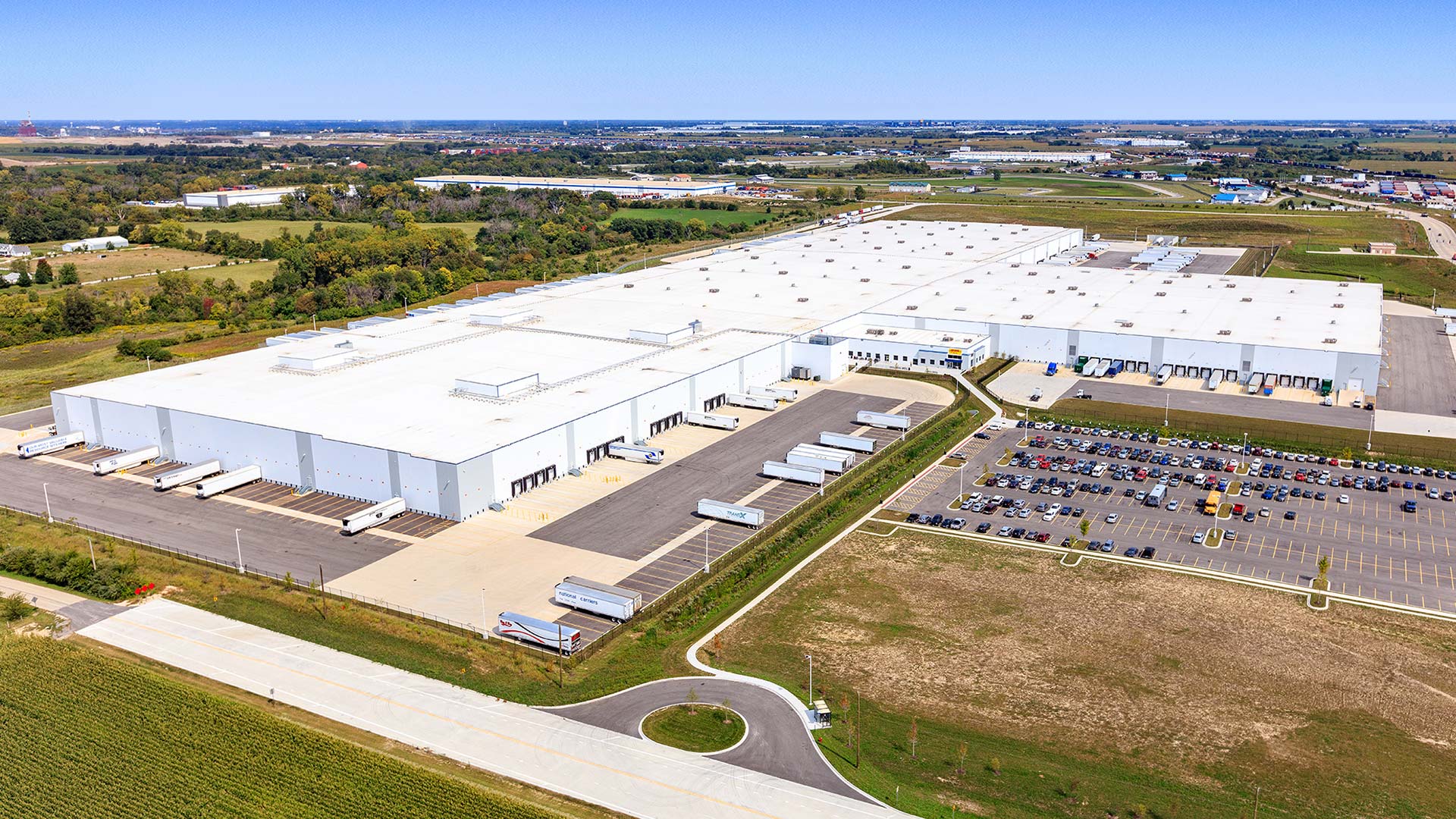CenterPoint Properties Helps Mars, Inc.
CenterPoint Properties Helps Mars, Inc. Achieve LEED Gold Certification with Sustainable Warehouse Development
Search Site
Back to Menu

Sustainability is moving higher on corporate leaders’ agendas. Prompted by evolving consumer preferences and competitive threats, organizations across industries are doubling down on initiatives to minimize their environmental footprint.
Increasingly, these efforts involve more than extra-curricular employee programs and tracking vanity metrics. C-level executives are taking a critical eye toward all aspects of their core operations, identifying opportunities to lead more environmentally conscious businesses.
Consumer-facing industries, particularly those in the food manufacturing and distribution space, face unparalleled pressure to improve sustainability throughout the supply chain. As Mars, Inc. – one of the world’s largest consumer food corporations – realized, modernized industrial facilities present a strategic way to improve energy efficiency and optimize resource consumption for the long term.
This case study walks through how CenterPoint Properties collaborated with Mars to develop a LEED Gold-certified warehouse and distribution center that not only delivers logistics advantages, but also demonstrates the organization’s fierce commitment to a sustainable future.
Perceptions around corporate sustainability are changing. What CEOs and boards once wrote off as “nice to haves” are now seen as a positive influence on the bottom line.
Today, eight in 10 CEOs believe it is important to measure and aim to reduce their organizations’ environmental footprint.[1] One of the most obvious targets for executing meaningful sustainability efforts is the supply chain. Research shows that an average consumer organization’s supply chain represents more than 80 percent of its greenhouse gas emissions, and more than 90 percent of its air, land, water and biodiversity impacts.[2]
Securing C-level buy-in around an initiative that transforms something as mission-critical as an organization’s supply chain requires a solid business case. As efforts from early adopters illustrate, doubling down on sustainability correlates with tangible financial results. Seventy-five percent of investors, for instance, report strong revenue performance and operational efficiency attributable to sustainability as critical reasons to invest in an organization.[3] Similarly, a Harvard Business School analysis of the world’s 500 largest organizations found that a brand’s environmental, social and justice performance highly correlates with business valuation, growth expectations and lower capital expenses.
Understanding the relationship between environmental responsibility, corporate reputation and success, Mars embarked on a long-term mission to build a more sustainable business.
The global organization, which includes household brands such as M&M’S, Uncle Ben’s and Pedigree, executes against a multifaceted sustainability strategy targeted at tackling five areas of their operations: land, water use, greenhouse gases, human rights and income. Some of Mars’ key sustainability objectives and achievements to date include[4]:
When it came time for Mars to build a new supply chain facility in the Chicagoland area, there was no question that sustainability would be part of the plan.
In 2015, the company approached CenterPoint Properties with plans to consolidate six existing local facilities into one new distribution and warehouse space – the first time Mars and its Wrigley product line would be together under one roof. After identifying the CenterPoint Intermodal Center in Joliet, Illinois, as the right location for its logistics campus, Mars and CenterPoint’s development leaders collaborated on a 1.4 million square foot build-to-suit property situated on approximately 100 acres of land.
The development, which was completed two months ahead of schedule, encompasses four key areas: a Wrigley facility, ambient storage for Mars’ line of Uncle Ben’s products, cool storage for chocolate and other products that must be kept at 42 degrees, and a co-pack center for assembling seasonal product assortments.
Throughout the planning and construction process, CenterPoint’s LEED-accredited team worked closely with Mars to ensure the property would reflect and support the organization’s commitment to sustainability. Complementing Mars’ mission to reduce its resource use and greenhouse gas emissions, the CIC-Joliet facility incorporates:
As a result of these intentional design and construction decisions, Mars’ facility enjoys significant environmental advantages over comparable developments, such as:
These sustainable features ultimately led to the facility achieving LEED Gold certification in February 2017. Mars’ new property is the second-largest facility in Illinois to receive the LEED certification, and exceeded the threshold for Gold status by nine points. In late 2016, the project was also named “Industrial Build-to-Suit of the Year” by NAIOP’s Chicago chapter[5].
Managed correctly, a commitment to corporate sustainability doesn’t support the environment at the expense of business operations. By partnering with CenterPoint, Mars enjoys the benefit of consolidated, state-of-the-art industrial facilities, and the significant progress made toward its environmental objectives. The Joliet development will not only create long-term logistics advantages for Mars, but allow the organization to make good on its promise of conducting business in an ethical, responsible way.
Becoming a sustainable organization isn’t only a matter of transforming your own operations – it’s about the businesses you partner with as well. As a LEED-accredited developer and property manager, CenterPoint has the expertise required to help navigate the complex planning, financial and regulatory processes associated with building sustainable industrial facilities.
Subscribe
Microsite Request